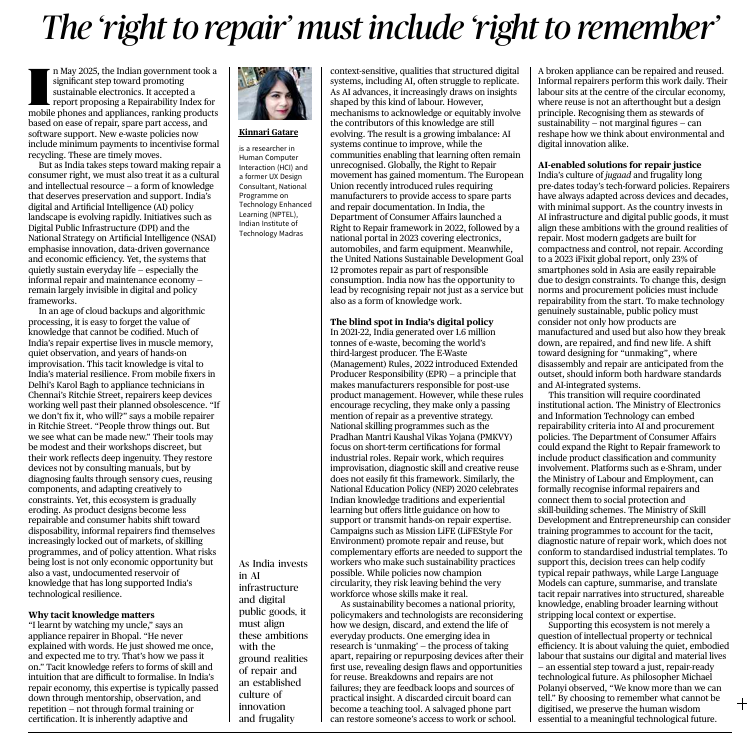Summary – The ‘right to repair’ must include ‘right to remember’
1. Context
- In May 2023, the Indian government accepted a Repairability Index proposal for mobile phones and appliances, factoring in spare part access, software support, and repair ease.
- This is part of a global push for the Right to Repair (R2R), but the article argues India must also protect the knowledge systems that underpin repair work—what the author calls the ‘Right to Remember’.
2. Importance of Tacit Repair Knowledge
- Repair in India is sustained by informal workers—from mobile fixers in Delhi’s Karol Bagh to appliance technicians in Chennai’s Ritchie Street—who adapt, improvise, and repurpose.
- These workers:
- Keep devices functional beyond planned obsolescence.
- Use creative methods like salvaging parts, cutting costs, and avoiding e-waste.
- Maintain invisible skills not documented in manuals.
- Keep devices functional beyond planned obsolescence.
3. Risks to Repair Knowledge
- Shift toward sealed, inaccessible, and proprietary tech reduces repairability.
- AI-driven and digital policy focus often sidelines informal repairers.
- Short-term skilling schemes and product recycling rules (like Extended Producer Responsibility) treat repair as secondary to waste processing.
- This undermines India’s long tradition of repair as part of material resilience.
4. Global & Indian Policy Moves
- Globally: EU Right to Repair legislation, European Union Circular Economy Action Plan, and repair documentation mandates.
- India: Department of Consumer Affairs’ R2R framework (2022), National Repair Portal (2023), and links to Sustainable Development Goals (SDG 12) on responsible consumption.
- Need for repair to be treated as both service economy and knowledge system.
5. Call for AI-enabled Solutions & Cultural Change
- Repair must be integrated into AI and consumer protection policy.
- India should leverage community involvement and local knowledge for sustainable repair.
- Shift public perception from repair as mere “fixing” to an act of stewardship of technology.
UPSC Mains Practice Question
GS Paper 3 – Science & Technology / Economy
“Right to Repair is not only a consumer right but also a cultural and technological imperative. Discuss its significance in the context of sustainability, informal economy, and digital policy in India.”


